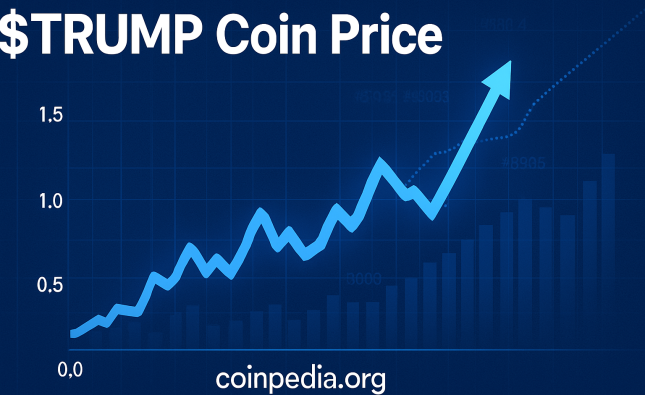
Geopolitical events have a profound impact on global financial markets. From wars and political instability to trade agreements and diplomatic relations, such events can send shockwaves through economies, stock exchanges, and currency markets worldwide. Understanding these dynamics is essential for investors, businesses, and policymakers. This article explores how various geopolitical events influence financial markets, the nature of their impact, and how investors can respond strategically.
1. What are Geopolitical Events?
Geopolitical events refer to any occurrences related to international politics and global relations that have the potential to influence nations economically or politically. These include events such as wars, elections, trade disputes, sanctions, or even natural disasters that affect a country’s political or economic stability. Key examples of geopolitical events include:
- War and conflict: Wars, insurgencies, and terrorist attacks.
- Political instability: Regime changes, revolutions, or contested elections.
- Economic sanctions and trade disputes: Tariffs, embargos, or the imposition of economic sanctions on countries or organizations.
- Diplomatic agreements: Peace treaties, trade agreements, and diplomatic collaborations.
These events can create significant volatility and uncertainty, which in turn affects financial markets, investor sentiment, and business confidence.
2. How Geopolitical Events Impact Financial Markets

The financial markets react almost immediately to geopolitical events. This reaction can take several forms, including stock market volatility, shifts in currency valuations, and changes in commodity prices. Let’s explore how these events impact specific areas of the financial markets:
a. Stock Markets
Stock markets are often the most visible platform for the immediate effects of geopolitical events. The uncertainty and risk posed by wars, elections, or sanctions usually lead to a sell-off in stock markets as investors seek safer assets.
For example, in times of war, defense stocks often rise due to the increased demand for military products. However, stocks in sectors like travel, hospitality, and retail may plummet due to decreased consumer confidence and spending. Recent examples include the Russia-Ukraine conflict, which caused major European markets to decline due to the fear of war spreading to other regions.
b. Currency Markets
Currency markets are also highly sensitive to geopolitical events. Investors tend to move away from riskier currencies, such as those in emerging markets, to safer, stable currencies like the U.S. dollar or Swiss franc during times of uncertainty.
Events such as Brexit, where the United Kingdom decided to leave the European Union, had a significant impact on the British pound, which saw considerable depreciation against the dollar and the euro. In contrast, the U.S. dollar often strengthens during geopolitical crises due to its status as a global reserve currency.
c. Commodity Markets
Commodities such as gold, oil, and agricultural products are heavily influenced by geopolitical tensions. Gold, for instance, is often regarded as a “safe-haven” asset, and its price typically rises when political instability is high. Conversely, oil prices can spike during conflicts in oil-producing regions, affecting the supply and driving up prices.
For example, the 2022 invasion of Ukraine by Russia significantly impacted oil prices due to sanctions on Russian oil exports and supply chain disruptions. This had a cascading effect on global inflation as fuel prices rose.
3. Key Geopolitical Events That Shaped Financial Markets
Several key geopolitical events in recent history have caused significant ripples in global financial markets. Some of the most impactful include:
a. The COVID-19 Pandemic
Although more of a health crisis, the COVID-19 pandemic had immense geopolitical implications. As countries closed their borders, trade and business were disrupted. Stock markets plummeted initially, with major indices such as the S&P 500 and the FTSE 100 experiencing steep declines. Central banks responded with stimulus packages to stabilize the financial system, leading to an eventual market recovery.
b. Russia-Ukraine Conflict (2022)
The Russia-Ukraine conflict in 2022 created substantial uncertainty in Europe and around the world. Global stock markets saw significant volatility, while oil and natural gas prices spiked due to fears of supply shortages. Sanctions imposed on Russia led to a reconfiguration of global energy markets and raised concerns about inflation.
c. U.S.-China Trade War (2018-2020)
The trade tensions between the U.S. and China caused global stock markets to react violently, especially in sectors reliant on international trade, such as technology and manufacturing. The imposition of tariffs on Chinese goods led to a slowdown in trade and weakened global economic growth, which in turn affected financial markets worldwide.
4. How Investors Can Mitigate Risks from Geopolitical Events
While geopolitical events are unpredictable, investors can take steps to manage the risks associated with them. Some strategies include:
a. Diversification of Investments
One of the best strategies to mitigate geopolitical risk is diversification. Investors should spread their investments across different regions, asset classes, and industries. This ensures that losses in one area can be offset by gains in another.
b. Investing in Safe-Haven Assets
During times of heightened geopolitical uncertainty, investors often turn to safe-haven assets such as gold, government bonds, or stable currencies. These assets typically retain their value or even appreciate when markets are volatile.
c. Staying Informed and Reacting Quickly
Keeping a close watch on global news and political developments is essential for investors. Those who can quickly adjust their portfolios in response to geopolitical events can often minimize losses or even capitalize on opportunities created by market fluctuations.
5. Long-Term Implications of Geopolitical Events on Financial Markets
While geopolitical events can create short-term volatility, they can also have long-lasting effects on financial markets. For instance, prolonged conflicts or trade wars can lead to structural shifts in economies, forcing businesses to adapt to new realities.
a. Shifts in Global Trade and Supply Chains
The U.S.-China trade war led to a reevaluation of global supply chains, with many companies moving production out of China to other countries. This reshaping of global trade has long-term implications for the financial markets as it affects global economic growth, profitability of corporations, and consumer prices.
b. Changing Investment Trends
Geopolitical events can also influence long-term investment trends. For instance, climate-related geopolitical concerns have led to an increase in investments in renewable energy and sustainable technologies, as governments shift toward green energy initiatives to reduce reliance on volatile oil markets.
c. Economic Policies and Market Regulations
Geopolitical events often lead to changes in economic policies, which can have long-lasting effects on financial markets. For example, post-pandemic stimulus measures and sanctions against certain countries create regulatory environments that shape investment decisions for years.
6. Analysis of Geopolitical Events and Financial Market Impact
| Geopolitical Event | Affected Financial Sector | Immediate Market Reaction | Long-Term Implications |
|---|---|---|---|
| Russia-Ukraine Conflict | Energy, Stock Markets, Commodities | Stock market decline, spike in oil prices | Long-term energy supply shifts, increased inflation in Europe |
| U.S.-China Trade War | Stock Markets, Commodities | Stock market volatility, tariffs increase prices | Reshaping of global supply chains, increased production costs |
| COVID-19 Pandemic | Stock Markets, Travel Industry, Tech Sector | Stock market crash followed by recovery | Permanent shift to remote work, acceleration of tech investment |
| Brexit | Currency Markets, Stock Markets | Depreciation of the British pound, stock market fluctuation | Long-term impact on U.K. trade, slower economic growth |
7. Comparative Analysis Table: Different Geopolitical Events and Financial Markets
| Factor | Russia-Ukraine Conflict | U.S.-China Trade War | COVID-19 Pandemic | Brexit |
|---|---|---|---|---|
| Duration of Impact | Medium-Long | Medium | Short-Medium | Long |
| Affected Assets | Oil, Natural Gas, Stock Markets | Stock Markets, Commodities | Stock Markets, Tech Sector | Currency, Stock Markets |
| Market Volatility | High | Medium | High | Medium |
| Safe-Haven Asset Surge | Yes (Gold, U.S. Dollar) | Yes (Bonds, Safe Currencies) | Yes (Gold, Bonds) | Yes (Gold, Bonds) |
| Global Economic Impact | Significant | Significant | Severe | Medium |
8. Conclusion
Geopolitical events, whether they are wars, elections, or trade disputes, play a significant role in shaping financial markets. Their unpredictable nature creates risks for investors, but also opportunities for those who can navigate through uncertainty. By understanding the links between geopolitical developments and financial market reactions, investors can better manage their portfolios and protect their assets during turbulent times.
9. The Role of Central Banks in Geopolitical Context
Central banks play a critical role in mitigating the effects of geopolitical events on financial markets. Their decisions can help stabilize economies during periods of uncertainty. For instance, during the Russia-Ukraine conflict, central banks in Europe and the U.S. had to consider how rising energy prices and inflation could impact economic growth. In response, many adopted more hawkish monetary policies, raising interest rates to combat inflation, which in turn influenced equity and bond markets globally.
Central banks also engage in open market operations to inject liquidity into the financial system when geopolitical tensions threaten to cause panic among investors. By lowering interest rates or purchasing government bonds, they can help maintain stability and investor confidence. This interplay between geopolitical events and central bank policies highlights the importance of a coordinated approach to economic management in the face of global uncertainty.
10. Behavioral Finance and Geopolitical Events
Behavioral finance examines how psychological factors influence investor behavior, especially during times of geopolitical turmoil. When faced with uncertainty, investors may react irrationally, leading to exaggerated market movements. For example, fear of potential conflict or economic downturn can result in mass sell-offs, regardless of a company’s fundamental strength. This phenomenon was observed during the initial stages of the COVID-19 pandemic, where markets plunged as investors panicked, only to recover as the situation stabilized.
Understanding these psychological triggers is crucial for investors. By recognizing patterns in market behavior during geopolitical crises, investors can develop strategies that leverage these insights. For instance, contrarian investing—buying when others are selling—can be a profitable approach if executed with careful analysis and timing.
11. The Impact of Social Media on Market Reactions
In today’s digital age, social media plays a significant role in shaping market perceptions and reactions to geopolitical events. News spreads rapidly across platforms like Twitter, Facebook, and Instagram, often influencing investor sentiment before official reports are released. Misinformation can lead to swift market reactions, creating volatility as traders respond to unverified news.
For example, during significant geopolitical developments, such as the U.S. withdrawal from Afghanistan or the escalation of tensions in the South China Sea, social media often amplifies public sentiment, leading to quick shifts in market dynamics. Investors must navigate this landscape carefully, discerning credible information from sensationalized headlines. As social media becomes an increasingly powerful tool in the dissemination of information, its impact on financial markets is likely to grow.
12. Future Trends: Geopolitical Risk and Financial Markets
As the world becomes more interconnected, geopolitical risks are expected to evolve. Issues such as climate change, cyber warfare, and global health crises will likely influence financial markets in unprecedented ways. Investors should be proactive in assessing these risks and considering their potential impacts on investment strategies.
For instance, the rise of climate change as a geopolitical issue has already started to affect energy markets and investment patterns. Companies that fail to adapt to sustainable practices may find themselves at a disadvantage, while those leading the transition to a low-carbon economy could experience significant growth. As such, investors must remain agile, continuously analyzing the geopolitical landscape to identify emerging trends that could shape financial markets.










